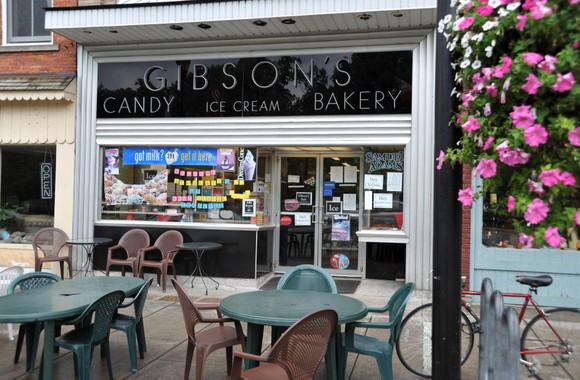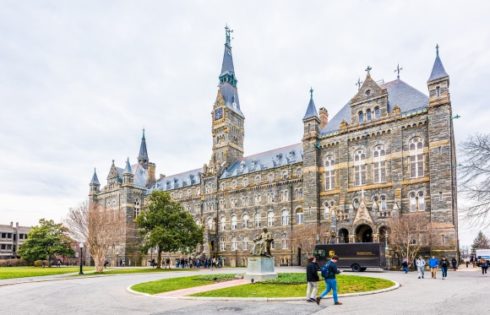
Judge denies motion for new trial: Damages not ‘manifestly excessive’
If you want to save your college tens of millions of dollars in litigation, settle quickly.
That’s the lesson colleges are likely taking from Oberlin College’s decision to take a chance on a jury in the defamation lawsuit by Gibson’s Bakery.
A judge denied the liberal arts school’s motion for a new trial this week following a $25 million jury award (plus $6.5 million in attorneys fees and costs) against Oberlin.
The documents filed by the parties this week suggest Oberlin could have saved itself $24 million by not dragging out the case.
The Chronicle-Telegram reports that Lorain County Common Pleas Judge John Miraldi rejected Oberlin’s motion because the damages awarded to the Gibson family were neither “manifestly excessive” nor “influenced by passion or prejudice.”
Oberlin had argued the judgment was “wildly excessive” in a 232-page motion. Miraldi’s response was a single page, according to the newspaper:
“This case has been pending since November of 2017, and the Court has been highly involved in nearly every phase of litigation, including presiding over several in-person pretrials, a lengthy final pretrial, and ultimately the six-week trial that concluded this case,” Miraldi wrote. “Through this involvement, the Court frequently interacted with the parties’ respective counsel, and was thoroughly familiar with their positions and strategies as they evolved throughout the litigation.”
MORE: Oberlin calls judge an idiot in hope of getting new trial
The settlement discussions were relevant to Miraldi’s refusal to grant the Gibsons another $105,000 in interest for alleged “bad faith” negotiations by the college.
Oberlin initially offered the Gibsons up to $4.67 million to settle, while the Gibsons wanted $5 million minimum:
Oberlin College offered the Gibsons $3.125 million during a final pretrial hearing in April, conditional on the Oberlin College Board of Trustees approving $1 million of that with the remainder coming from the college’s insurance companies.
The Gibsons’ attorneys wrote in the documents filed Monday that additional discovery provided by the college — which it allegedly refused to provide — “would answer the interesting question of whether the Oberlin Board was ever presented with the proposal to join with the insurance companies in offering a settlement and contributing $1 million to said package.”
In other words, the college could have taken a $1 million hit and just dealt with higher insurance premiums going forward. Instead, negotiations continued as the trial started.
Before the jury decided compensatory damages, the Gibsons offered a relatively good deal in retrospect: Oberlin would pay $13.5 million, grant the bakery (below) a 10-year contract, and acknowledge “the lack of any evidence regarding racism by the Gibsons or their bakery” against Oberlin students of color, the basis for the protests against the bakery.
Oberlin refused to negotiate “before we hear from the jury,” even though the settlement would prevent the Gibsons from suing again. Days later, on June 7, the jury awarded $11.2 million in compensatory damages.

MORE: Judge knocks down Oberlin’s attempt to stiff Gibson’s Bakery lawyers
The Gibsons’ next offer, four days before the jury decided punitive damages, was $16 million and a 15-year bakery contract. Oberlin lowballed in response, offering $4.6 million, and the Gibsons retorted with $15 million.
Showing either its sloppiness or misplaced confidence, Oberlin didn’t counteroffer again until the Gibsons’ lawyer Lee Plakas was making his closing argument on punitive damages June 13.
Sent by email, the counteroffer was contingent on the Gibsons accepting it before jury deliberation and required the family to dismiss Dean of Students Meredith “Fuck him” Raimondo from the litigation:
“Thus, in order to evaluate and respond to this communication, (Plakas) would have needed to check his email, stop in the middle of closing arguments, then provide a response” to Oberlin College, attorney Brandon McHugh wrote on behalf of the Gibsons. “The offer did not take into account the substantial possibility that the jury, which had just awarded $11,000,000 in compensatory damages, would award significant punitive damages and also find that (the Gibsons) were entitled to an award of reasonable attorneys’ fees.”
The combined compensatory and punitive award ended up being $44 million, which was lowered by Miraldi to $25 million to comply with state law. That’s only because of Republican-led tort reforms in Ohio, as Cornell Law Prof. William Jacobson noted at the time.
As the Chronicle-Telegram noted: “All the settlement offers were many millions less than the Gibsons were awarded by the jury.”
MORE: Oberlin didn’t apologize to Gibsons because that might offend students
IMAGE: Happy Stock Photo/Shutterstock, PICTOR PICTURE COMPANY/Shutterstock
Like The College Fix on Facebook / Follow us on Twitter






Please join the conversation about our stories on Facebook, Twitter, Instagram, Reddit, MeWe, Rumble, Gab, Minds and Gettr.